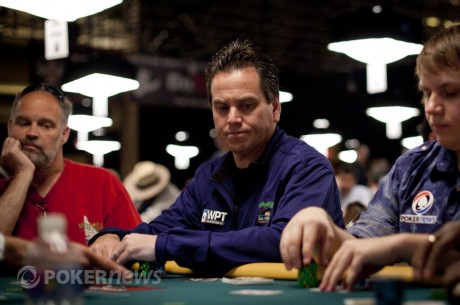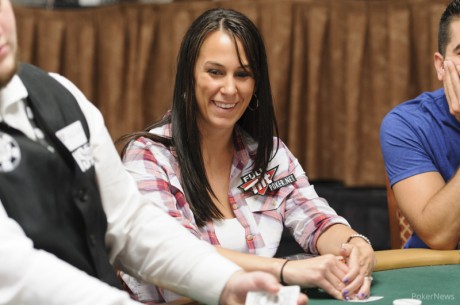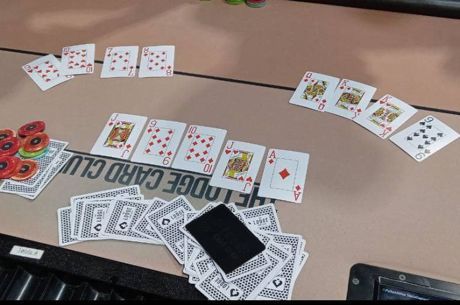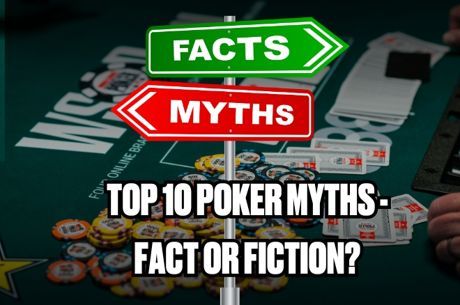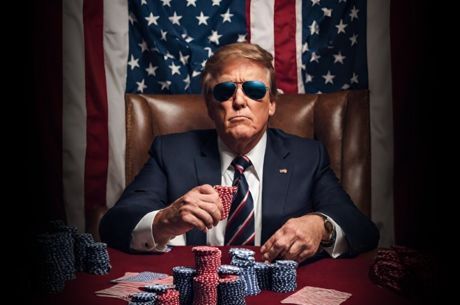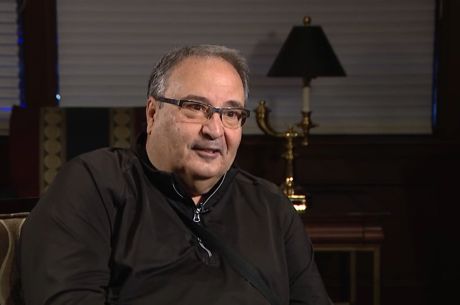Op-Ed: The Case Against the "First Card Off the Deck" Rule
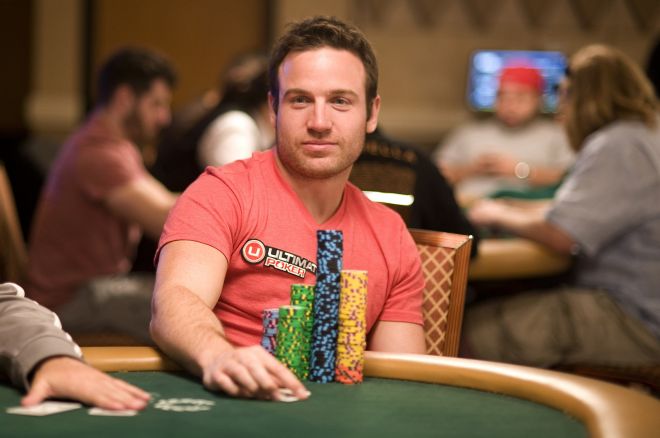
Few rules in poker have sparked so much debate and been responsible for such public vitriol as the "first card off the deck rule" (FCOTD), a recent rule change decided on by the Tournament Directors Association (TDA) during its June summit in Las Vegas.
TDA 29: At Your Seat
A player must be at his seat when the first card is dealt on the initial deal or he will have a dead hand. A player not then at his seat is dealt in, he may not look at his cards, and the hand is immediately killed after the initial deal. His blinds and antes are posted and if dealt the bring-in card in a stud-type game he will post the bring-in*. A player must be at his seat to call time. ��At your seat�� means within reach of your chair. This rule is not intended to condone players being out of their seats while involved in a hand.
The TDA meets every other year in Las Vegas to discuss amendments to rules, as well as new rules altogether, with the purpose of standardizing rules for tournament poker as much as possible around the world. This allows people to play tournaments all over the globe with a reasonable expectation of what rules will be used, enhancing the experience and comfort level of players, while helping to promote the game we all love. The organization has been incredibly beneficial to tournament poker and the game as a whole, as well as to the players who enjoy it. All poker players, especially those of us that travel the tournament circuit, owe a debt of gratitude to the hard work of the TDA. Its positive influence, however, does not mean that it is infallible.
The two major written statements regarding the validity of the TDA Rule No. 29 change have come from Global Poker Tours Limited head of live poker operations Neil Johnson and World Poker Tour executive tour director Matt Savage, both in favor of the rule change. In my opinion, both pieces drastically overstate the benefits of this rule change while briefly mentioning arguments against it, at times in a rather condescending tone. I'll first list the arguments presented in favor of the rule and my feelings as to their validity, and then list the reasons why the former rule is better for the game.
1. Game Integrity
In my opinion, this is the only decent argument in favor of the FCOTD rule. Of course, it's extremely bad to have a player standing behind another player peering as his hole cards are peeled. No one is arguing against this point. However, this just never happens, and in the incredibly rare event that it does, this rule in its current form cannot prevent it.
Let's first try to imagine the scenario where this would be possible. As Savage points out in his op-ed piece, a full deal in a two-card game like hold'em only takes 6-10 seconds, which means the small blind will only have both cards for 3-5 seconds before the last card hits the button. In this brief time, Player A would have to gather his hand and look at it, without properly protecting it, while Player B lurks behind him. In the remaining seconds, Player B would have to run around the table racing the deal as if playing a game of 'duck, duck, goose' and make it back to his seat before the deal is finished. Of course, it would be much more feasible for the button to stand behind the small blind on his immediate left and have plenty of time to get back to his seat, but he can still do this now. Players are still allowed to stand at their seats, allowing them to have a better view at the hole cards of the opponent next to them.
Even requiring players to be in their seats wouldn't stop players from leaning back in their chairs, which in my experience is far and away the most common way that hole cards are seen by others. The only way to stop this would be to have chairs bolted to the floor and a roller coaster-like shoulder harness that locks players in before the dealer begins the pitch, then releases players when the last hand is mucked. This rule is inventing a problem to solve. If a player protects his hand, no one else can see it.
2. Dealer Integrity
It is true that dealers occasionally slow down the deal to allow players to return to their seats in time to avoid killing the hand. While robotic uniformity may be preferred, we're dealing with human beings here and these things happen. However, I don't recall a time where a dealer chose some players to slow down for and decided to screw others by speeding up. Furthermore, dealers generally don't just choose people to dislike. If a dealer has a problem with a player, that player has probably done something insane like blame the dealer for bad cards, often accompanied by foul language and throwing cards in the dealer's direction.
If the dealer's sole recourse is to not slow down in the rare event when this douche is running back to the table, I'm all right with that. There's also been some talk about dealers favoring pros and slowing down for them specifically. I find this disingenuous and may even have been stated with the purpose of creating a rift between amateurs and professionals. In my experience, dealers don't discriminate in this manner. Lastly, dealers can still look around or delay the first pitch for players not at their seats. Other stalling tactics like dragging the antes slowly, giving the deck extra riffles during the shuffle, or even "accidentally" dropping the deck become much more effective under the new rule, so the change doesn't tackle this alleged problem either.
3. Bubble Play
In big-field tournaments especially, it can get chaotic on the bubble. Tournament directors often request that players stay in their seats to avoid confusion and confirm player counts to ensure proper payouts. This is a totally reasonable request, but if the TDA wants to make this a rule, then it should make it a rule. Don't restrict players' movement for an entire event for the purpose of alleviating a problem that takes place for less than 1% of the tournament. Moreover, most tournament directors require much tighter restrictions during bubble play than this rule change provides, so it does very little to help this small period of play.
4. Room Flow
In his op-ed piece, Johnson argues that this rule makes it more difficult for players to leave their seats, making it easier for him and his buddies to move about the room. I wish this were a joke. Pardon us, the paying customers, for occasionally getting in the way of the staff whose salaries we're paying. Please accept our sincerest apologies.
*This rule speaks to the fact that while the TDA generally has the interest of the players in mind, our incentives are not entirely aligned. Players need more participation going forward. More on this later.
5. Standardization
Savage makes the point that it was an important goal to make these rules standard across the major tournament circuits, and that some compromises might be necessary. Of course, rule standardization is important and the main purpose of the TDA, but some rules are more important to standardize than others. We're never going to standardize every rule across every casino, and this should not be the purpose.
For example, at the WSOP I can use the word "f***" somewhat liberally as long as it's not directed at anyone and no one is overly offended. At a WPT event at the Bicycle Casino in L.A., using the word "f***" under any circumstance results in a penalty. If both of these circuits are using TDA rules, how can this be? How can I as a player possibly go on without a clear-cut rule stating whether I can or can't and in what vain use the word "f***?"
As Savage states, this FCOTD rule just isn't that big of an issue, so perhaps the TDA is overstepping its bounds a bit here in its quest for standardization. Standardization isn't beneficial when bad rules are made to be universal.
Now, here are a couple of reasons why the former rule of "last card hits the button" is better for poker and the players that play it.
1. Rules Should Err On the Side of NOT Killing Hands
Rules should place as little restriction on players as is necessary in order to uphold game integrity. As players, we want to go out and enjoy our time at the tables. A significant part of this means not worrying about having hands killed unless absolutely necessary. In fact, to the credit of Savage and the rest of the TDA, rules have made it harder and harder to warrant killing a player's hand to this point. If a player intentionally exposes his cards to get a read on a player, his hand remains live. If a player accidentally mucks his cards in front of him, his hand is still live. Even if a player's cards enter the muck, his hand remains live as long as his cards are clearly identifiable. If it isn't entirely necessary to kill hands, we shouldn't be doing it. The FCOTD rule goes directly against this principle.
2. Dealer Function
With the "last card" rule, dealers can immediately kill hands as they are deemed dead when the last card hits the button. With the FCOTD rule, dealers cannot kill hands while in the midst of a deal, causing dead hands to be pitched to stacks. This creates unnecessary arguments and a rift between players and dealers as emotional players don't want to give up the hand in front of them. It becomes especially heated when players look down at a strong hand, causing additional tension between players and staff. The fix for this, pitching dead hands to the center of the table, creates confusion for dealers and often misdeals as it becomes difficult to track which stacks should be pitched to and which should be passed over. At the very least, it slows down deals considerably as dealers are forced to think about where each card should be pitched.
3. It's a Social Game
I love playing live poker, and believe it or not, it isn't the uncomfortable chairs or sub-twenty hands per hour that do it for me. It's the social atmosphere of being able to talk to men and women from all walks of life that find their ways to the same event. Of course, there are players at your table to engage with, but oftentimes good friends or acquaintances are seated nearby and many of us just can't help but interact. If one happens to find himself a table or two away from his chips, seeing cards flying is an extremely visible and final warning to get back to your seat. Seeing a pot pushed is generally a good indicator also, but not quite as easy to spot. Additionally, the "last card hits the button" rule allows a few extra and important seconds required to get back to play. In games like Omaha or draw games, this could amount to 20 extra seconds to return to your seat. It may not sound significant, but when breaks are often only about 30 seconds to begin with, it amounts to a considerable addition of time and freedom over the course of an event.
This becomes especially important for spectator events like the World Series of Poker. Fans come from all over to watch some of their favorite poker players perform, and some of the most popular players gladly go to the rail between hands to sign autographs or pose for pictures. In particular, Daniel Negreanu will often go to the rail in between almost every hand for long periods just to chat and spend time with fans that traveled long distances just to see him. This becomes much more difficult and risky if hands are being killed as soon as the first card is pitched, and it's not just detrimental to a few popular pros.
Amateurs often have friends and family that are understandably excited and interested to know how the event is going. These players will get up and go to the rail to report back and receive well wishes before the interested parties head back out to the glitz and glamour of the Las Vegas Strip. This amazing and electric atmosphere is what keeps players coming back to the tables year after year, and we shouldn't be making this harder or killing hands without an especially good reason.
Conclusion
Finally, I'd like to address the claim that if a player did not attend the TDA summit, he somehow doesn't have the right to comment on the rules that came out of it. First off, the summit is during the WSOP when the vast majority of professional poker players are busy trying to earn a living. More importantly, no player, professional or amateur, should be forced to attend a meeting in Las Vegas to make a case for or against a rule. Players are not paid a salary like tournament directors are. Some players make a ton of money, but the majority are grinding out a living like everyone else or just playing occasionally for enjoyment and don't have the time or energy to attend a two-day conference.
Fortunately, social media and the Internet more generally make it extremely easy to relay one's input without sacrificing the time and expense required to attend a physical meeting. I'd like to humbly propose for consideration by the TDA, that members of the poker community unable or unwilling to attend the summit have a chance to read and react to proposed rules and amendments before the summit is held. This seems easy to accomplish: Any new rule proposals should be posted to some public forum 30 days before the meeting is held. This will give the community ample time to debate and discuss and work out intelligent arguments for and against changes from the players' perspectives. I won't get into the voting process and how many votes players should receive, but this would at least give players passionate about a proposed change the time to plan a potential trip to the summit to argue their points. As it was, most players didn't find out about this rule change until after it had been voted on. Clearly, there is room for improvement and we should all look forward toward working together toward an improved system for all those that enjoy this incredible game.
For this particular rule, I'd ask the TDA to consider another vote amongst its members after reading these points in favor of the former rule. If the rule is not changed or retracted from the handbook entirely, I'd ask casinos to refrain from practicing this one rule from the TDA handbook. There are plenty of events that ignore certain rules, and this is one that should definitely be excluded. There's a limit to the benefits of uniformity, and we've reached it.
Please note that the thoughts and opinions expressed in this article reflect those of the author and not of PokerNews.
Below is a short video of O'Brien discussing this feelings about the rule, courtesy of UtimatePoker.com:
Have an opinion on the "first card off the deck" rule? Voice it in the comments section below, and be sure to follow Dan O'Brien on Twitter and on Facebook.
Get all the latest PokerNews updates on your social media outlets. Follow us on Twitter and find us on both Facebook and Google+!

